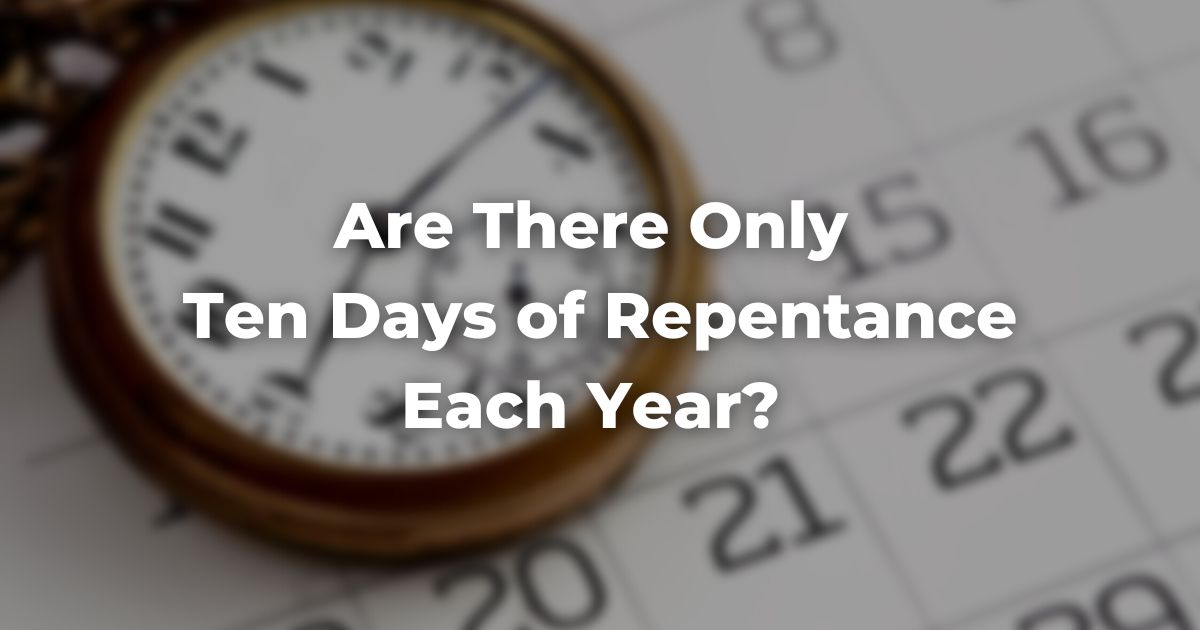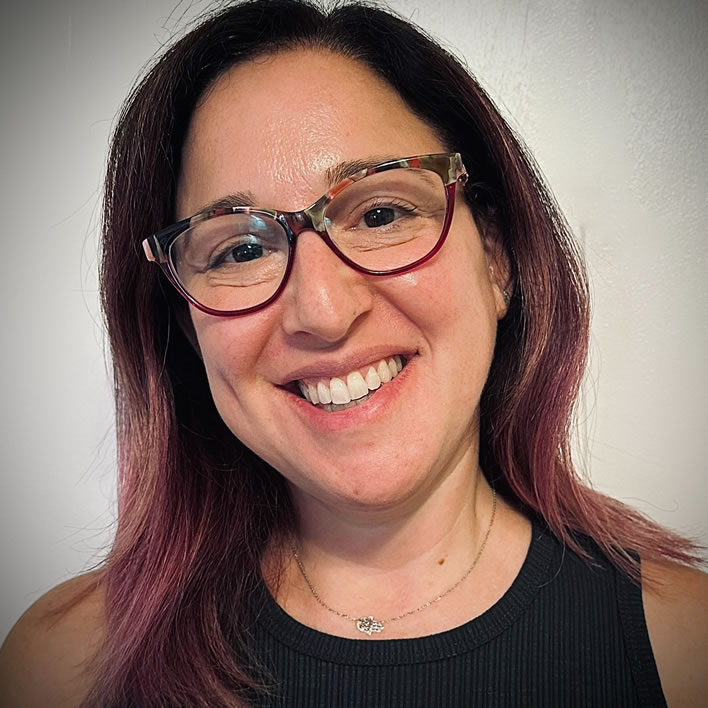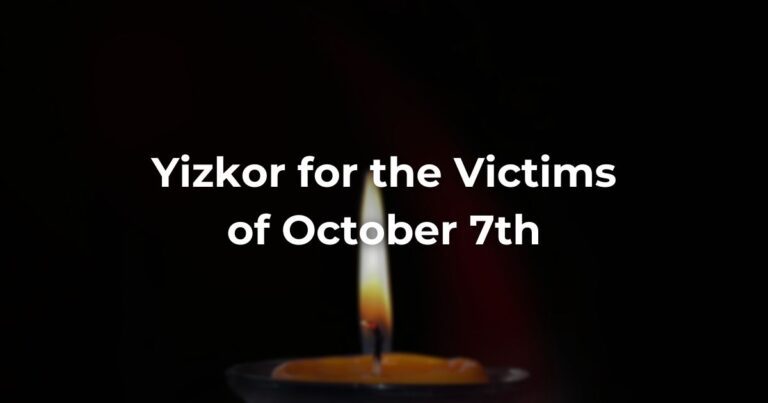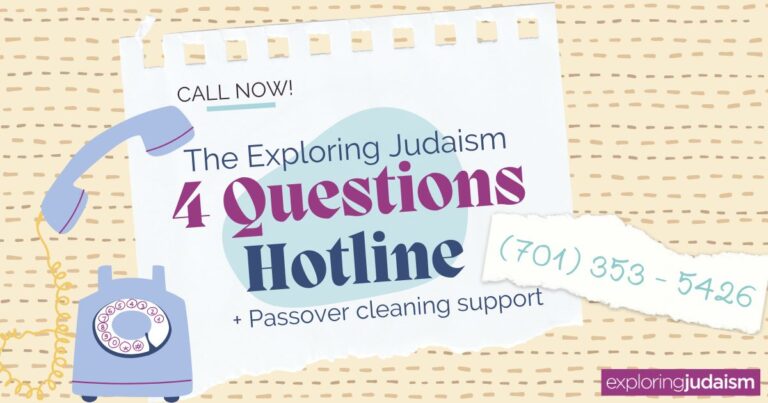This piece is part of Exploring Judaism’s 5785 High Holiday Reader. Download the whole reader here.
Rabbi Dr. Reuven Hammer wrote The Ten Days of Repentance, how Unetaneh Tokef states that between Rosh Hashanah and Yom Kippur there is an opportunity to avoid the “severe decree” by:
- Repentance
- Prayer
- Charity
While these three actions are critical at the most holy time during our Jewish year, of course, every day is important in practicing repentance.
Teshuvah: Individuals, Community and Kavanah
How many times have you gossiped with a friend about a mutual friend and joked, “We’re so bad, but we can make it up between Rosh Hashanah and Yom Kippur!” While we laugh, and I am guilty of doing this myself, it makes me wonder, why would one wait months before asking for G_d’s and anyone else involved, forgiveness for lashon harah (speaking badly of others)?
Why wouldn’t one ask for forgiveness sooner, whether that be quietly in personal prayer or in another manner? And how do our actions not only affect one person but our larger community?
When we say Al Chet (statements, mistakes) on Yom Kippur, we confess our sins, plural.
There is a sense of community taking responsibility for each other, which is an important aspect of the Jewish faith. Community is one of the bases of Judaism, whether one sees that as their chevruta (learning partners/learning group) in studying the TalmudReferring to one of two collections, the Jerusalem and Babylonian Talmuds, edited in the 6th century, that contains hundreds of years of commentary, discussion, and exploration of the ideas in the Mishnah. One could describe it as Mishnah + Gemara = Talmud Read more or their child’s Jewish Day School.
We are one people but at the same time, our people are made up of individuals with faults, goodness, love, hate – so many personal attributes that make each of us who we are as singular people.
Reciting Al Chet on Yom Kippur, whether in a synagogue, a chapel, someone’s backyard or a service streaming online, is almost akin to a different type of group therapy where each member is non-communicative to the other members, instead, are looking deeply within themselves as they repent.
It doesn’t separate them from the group, it actually brings them closer as they participate in prayer in order to own their personal sins and that of their group, as well. That’s their community and they are taking responsibility for one another by repenting together and praying together.
When we, members of our “group”, say Al Chet while beating our chest where our heart is, it is set up to be said with great kavanah (intention). Without kavanah, there is no real repenting. Simply saying you are sorry for lying, knowing you do not actually mean it, does not count. One must feel the repentance internally and only then will one act with kavanah while atoning for that sin. It’s imperative on a personal level but it is also said affirming the inclusion of our community.
Family Responsibility: Teshuvah for All Ages
As my husband and I are raising our 12-year-old child, we have always taught that saying “sorry” and taking responsibility for your actions are very important. We don’t teach that if they have an argument with a friend to walk away and wait to ask for forgiveness 7 months later!
This is a bit dramatic but that is the point. Each day has opportunities to realize a wrongdoing, understand why it was wrong and to repent for it. Praying for forgiveness and performing an act of charity can occur in a matter of hours.
While my 12-year-old knows when they do something that affects someone else negatively and they own up to it, they are demonstrating a level of regret and repentance. This not only affects themself, but others involved, part of their community. By owning up to their transgression and repenting, they are already in the mode of what we practice during the 10 days of repentance.
Teshuvah does not entirely live in those 10 days between Rosh Hashanah and Yom Kippur. Our behaviors and actions not only represent ourselves as individuals but also as members of our community and we need to remain aware of that.
My challenge to people is to have more self-awareness and more kavanah in a 24 hour day, 7 days a week and 365 days a year toward oneself, toward others and toward G_d, by performing different forms of Teshuvah: repentance, prayer and performing acts of charity.
Doing this while remembering that life is not only about an individual, it’s inclusive of one’s community, as well.
My Question: Are there only 10 days of repentance (Teshuvah) each year?
My Answer: No. Every single day is an opportunity for repentance (Teshuvah), for oneself and one’s community.
Author
-

Risa has an MSW from Fordham University and attended The Jewish Theological Seminary’s List College and has a BA from Columbia University. She has spoken about her history with mental illness for the Hartford Foundation for Public Giving and was featured in Women's Health Magazine's May 2016 issue regarding mental health. Risa was also a panelist on AOL Build discussing the effects of stigma on those with mental illness. In 2017, Risa was also featured in an episode of Dr. Oz discussing her success with ECT (electroconvulsive therapy) and was a featured speaker at Jewish Family Services of Greater Hartford’s first annual event: Embracing Possibility for Mental Health Awareness and was awarded the 2018 Humanitarian Award at the second annual event. She has written for Huffington Post, Psych Central, Kveller, Keshet, The Mighty, Bring Change 2 Mind and was published in the 2nd and 3rd volumes of Stigma Fighters Anthology and on her own blog, risasreality.com. Risa lives in central CT with her husband and their 13 year old child.
View all posts






